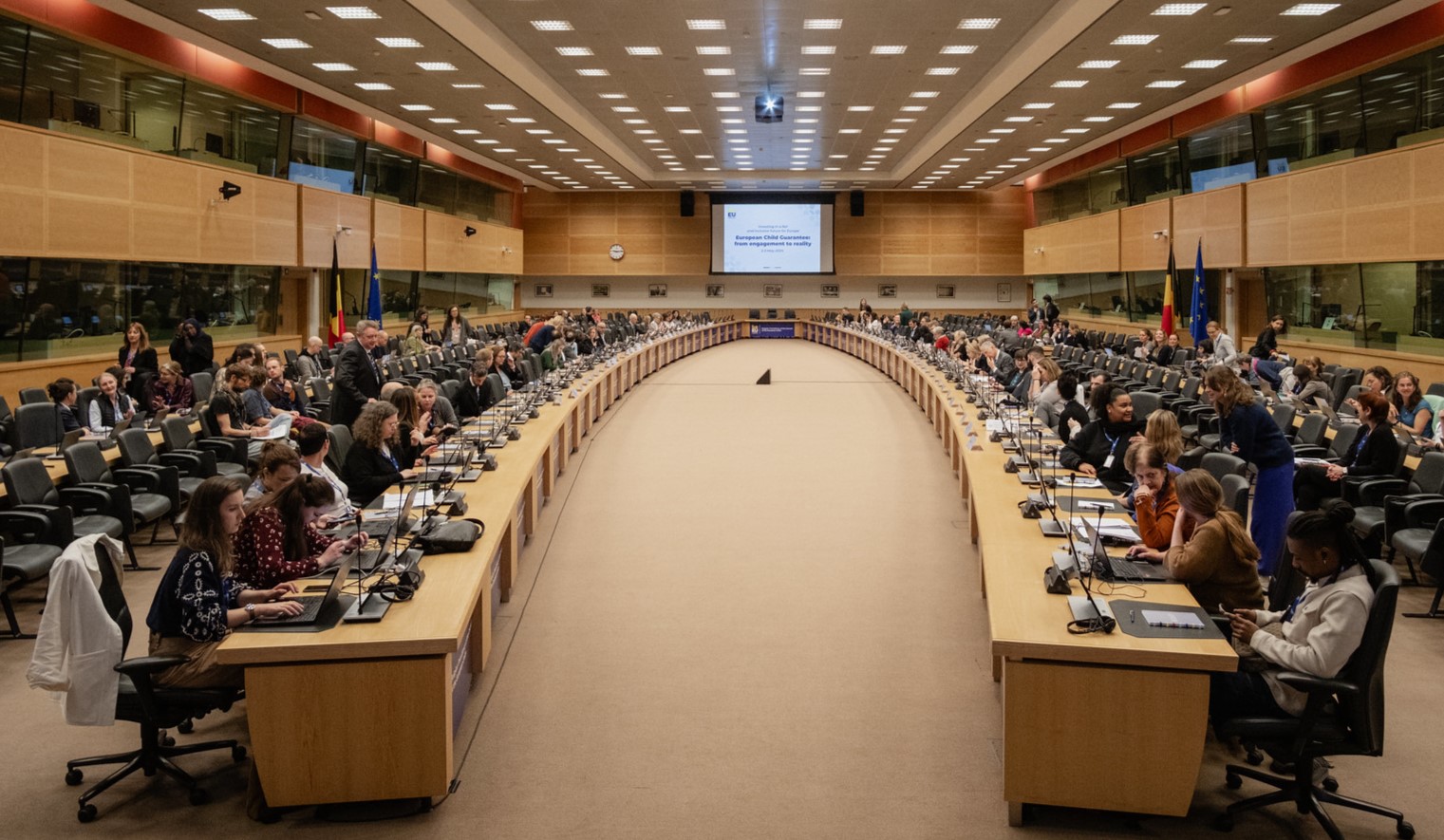Advancing Early Childhood Education and Care: insights from the recent Belgian Presidency event
On 2 and 3 May, the Belgian Presidency orchestrated a significant event titled "Investing in an inclusive and fair future for Europe. European Child Guarantee: from engagement to reality".
The conference, inaugurated by Karine Lalieux, Belgian Minister for Social Integration and Poverty Alleviation, and enhanced by the presence of Her Majesty Queen Mathilde of the Belgians, convened representatives from the European Commission, the European Parliament, Child Guarantee national coordinators, and NGOs. Its overarching objective was twofold: to assess the progress achieved by Member States in tackling child poverty and to provide a platform for coordinators to share insights into the implementation of the European Child Guarantee.
The event's agenda spanned a range of topics, commencing with the presentation of the outcomes of the "Europe Kids Want" consultation, offering invaluable insights into children's perspectives. Following this, Save The Children delivered a stark overview of recent child poverty statistics, underscoring the pivotal role of national social protection systems and the European Child Guarantee.
Despite the commendable efforts of Member States, critical voices emerged concerning the Child Guarantee action plans and the measures implemented. Many of these initiatives were not novel but rather pre-existing or planned measures. Such shortcomings are alarming, considering that almost 20 million children under the age of 18 in the European Union are at risk of poverty or social exclusion.
The second day of the event featured two parallel sessions, each tackling crucial aspects of child poverty alleviation. One session, spearheaded by Flanders, focused on "Participation in policy of children in need", while the other, led by ONE ( Office de la Naissance et de l’Enfance), in charge of childhood and parenthood matters at the Wallonia-Brussels Federation, delved into "Accessibility to Early Childhood Education and Care (ECEC)".
The latter session witnessed insightful presentations and discussions. Eurochild outlined policy recommendations emphasising the centrality of children's rights in the political agenda, the need for efficient data collection, protection of vulnerable children, and investments in prevention. Professor Michel Vandenbroek from Ghent University provided a comprehensive analysis of 17 Child Guarantee Action plans, highlighting areas for improvement such as enhanced data systems, deeper country analyses, and capacity building programs.
Italy, Slovenia, Belgium (French-speaking community), and Portugal shared their respective measures to implement the Child Guarantee, with a particular focus on improving access to Early Childhood Education and Care (ECEC) for vulnerable children. Key strategies included adjustments to current legislation for the benefit of children in need and their family, support to improve conditions at work, training and quality provision, intersectoral collaboration, financial accessibility, and addressing non-financial barriers.
One standout example was the Elmer crèche in Brussels, which illustrated how local partnerships and support from agencies like Opgroeien facilitated children and families' inclusion in disadvantaged areas.
In conclusion, Member States were urged to capitalise on the momentum created by the Child Guarantee to enact meaningful change beyond conventional approaches. Investing in children is not merely an expense but a strategic investment in building inclusive, equitable, and fair European societies now and in the future.
Article written by Géraldine Libreau, Policy Officer for Early Childhood Education and Care, DG Education, Youth, Sport and Culture, European Commission, and Ally Dunhill, Director of Policy, Advocacy and Communications at Eurochild.
Photo by Belgian Presidency of the Council of the European Union.





